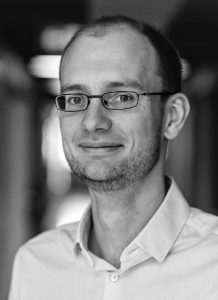
Building peace implies great commitment to society

Foto: Paul Maura
Dear readers, colleagues, and friends
I wish to welcome you to the web pages of the German-Colombian Peace Institute – CAPAZ. The CAPAZ Institute is an academic, politically independent platform that promotes research and discussion in topics related to sustainable peacebuilding in Colombia.
In this sense, one of our main goals is to strengthen the spaces in which researchers, intellectuals, politicians, people from different areas of civil society, and citizens from Colombia, Germany and other countries can reflect on the peace process and the challenges of the signed agreements. This includes mutual exchange and learning between different Latin American countries, Latin America and Europe, and the comparative study of different peace processes around the world. We also focus on teaching, training, and the dissemination of research results in order to develop instruments that allow us to assess the different political actors and to promote peace. The CAPAZ Institute includes people from different contexts and experiences and a great variety of perspective and thematic focuses. Despite their heterogeneity, all of them coincide in a fundamental aspect: a concern for sustainable peacebuilding.
This implies, on one hand, looking back and seeking ways to deal with the violent past and accompany the process of transitional justice, a search for the truth, and the construction of historical memories which will always have to be constructed in plural. On the other hand, it also includes the fundamental task of looking to the future in order to discuss and design policies that allow the construction of a peaceful and prosperous society with strong social and environmental justice, which, in turn, promotes diversity.
Understood as such, peace becomes a continuous task and, at the same time, a duty that must never be considered as being over. It’s not about turning the page and leaving the past to become history and lose its relevance for the present. We can’t put our feet up and just expect the causes of violence, hate and intolerance to disappear in time. There are enough cases in different parts of the world such as Germany, Europe, the United States and the number of Latin American countries that teach us the contrary. In fact, these examples bring to mind a fundamental point: those who fail to learn from their past are doomed to repeat it.
We know that the peace agreement is a first step of utmost importance and perhaps one that is easier than the steps we now have to take to build sustainable peace. Although peace is fundamental for a society’s well being, it’s construction and consolidation constitutes an enormous task with no alternative.
Peacebuilding is a decision; often a vocation that implies great commitment to society and which frequently demands important personal, family, and sometimes even financial sacrifices. It is worth pointing out that this is valid above all for people and organisations that work in the areas of the country where the conflict has left deep wounds and where the post-conflict often seems like a word a long way away that is particularly suited to describing and understanding local realities. Thus, being present in different parts of the country and collaborating with different academic, political, and social actors of the region is a fundamental part of the work we do.
In the context of the peace process, the CAPAZ Institute plays are very specific and particular role. We want to work to open spaces and to promote research, learning, reflections and discussions among people who would probably not meet in other circumstances. As such, we seek to contribute to the building of bridges that lead a safe and direct path toward peace and that have the potential to uncover other paths -until now, secondary, hidden, or forgotten- that would lead to the same goal: sustainable peace.
To reach these goals we have to work as a team and I am very happy to know that the CAPAZ Institute has very strong and consolidated academic teams and networks made up by people committed to reaching our shared goal. But we also know that these teams need to be bigger, stronger, and more diverse, and this is why I want to invite all of you to accompany us by participating in CAPAZ activities, researching, discussing and learning alongside us, contradicting and criticising us, and, above all, collaborating with work.
For me, it is a great honour to take on the directorship of the CAPAZ Institute and be able to work with you. I hope that together, we can build sustainable peace in Colombia, and generate knowledge and reflection to help us think again about how we deal with violent pasts in Colombia and in other countries.
Prof. Dr. Stefan Peters
Academic Director – Instituto CAPAZ



